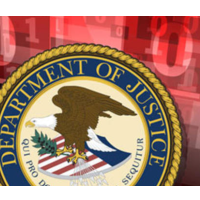U.S. Justice Dept. Seeks Authority to Hack Remote Computers
 (CBS/AP graphic)
(CBS/AP graphic)
The Department of Justice (DOJ) is asking for more leeway to hack into computers suspected of being used in crimes, a request that concerns some privacy advocates.
The DOJ wants judges to be able to issue warrants to allow electronic searches of computers located anywhere in the country. Currently, a warrant is valid only in the district where the judge issued it. Justice officials say this ties their hands when investigating schemes that involve the use of computers whose location has been hidden, or use of botnets, in which software has been surreptitiously loaded on many computers, allowing those machines to perform tasks and store data without their owners being aware of it.
Civil libertarians fear the expansion of warrants would put more personal information from innocent people in the government’s hands. “[The proposal would] significantly expand the circumstances under which law enforcement can conduct secret, remote searches of the sensitive contents of people's computers,” American Civil Liberties Union attorney Nathan Freed Wessler told IDG News Service. “Our computers contain a wealth of private information about us, and it is crucial that the courts place strict limits on secret electronic searches by law enforcement.”
The Justice Department has tried to play down any effect the new rule would have on privacy concerns. “The key thing to highlight is that our proposal would not authorize any searches or remote access not already authorized under current law,” DOJ spokesman Peter Carr said. “The probable cause and particularity standards we have to meet to obtain the warrant from the court do not change, and the execution of the warrant remains under the supervision of the court.”
The request comes a year after a federal judge in Texas denied a request for a warrant to install software on an unknown computer in an unknown location. The software would have accessed records on the computer and even turned on the computer’s camera, all without the owner being aware of it. Judge Stephen Smith denied the request, saying it didn’t pass constitutional muster because the computer could be in a public place and accessed by other users, such as family or friends, not involved in illegal activity.
If the change occurs, it won’t be for a while. The proposal was published May 8 by the Judicial Conference Committee on Rules of Practice and Procedure. If that group decides to consider the plan, it would open a six-month public comment period in August. The proposal could be modified, and would have to be approved by Congress before it goes into effect.
-Steve Straehley
To Learn More:
U.S. Justice Department Asks For New Authority To Hack And Search Remote Computers (by Grant Gross, IDG News Service)
Federal Agents Seek to Loosen Rules on Hacking Computers (by Chris Strohm, Bloomberg)
Homeland Security and Navy Award Contract to Hack into Gaming Systems (by Noel Brinkerhoff and David Wallechinsky, AllGov)
- Top Stories
- Unusual News
- Where is the Money Going?
- Controversies
- U.S. and the World
- Appointments and Resignations
- Latest News
- Trump to Stop Deportations If…
- Trump Denounces World Series
- What If China Invaded the United States?
- Donald Trump Has a Mental Health Problem and It Has a Name
- Trump Goes on Renaming Frenzy






Comments